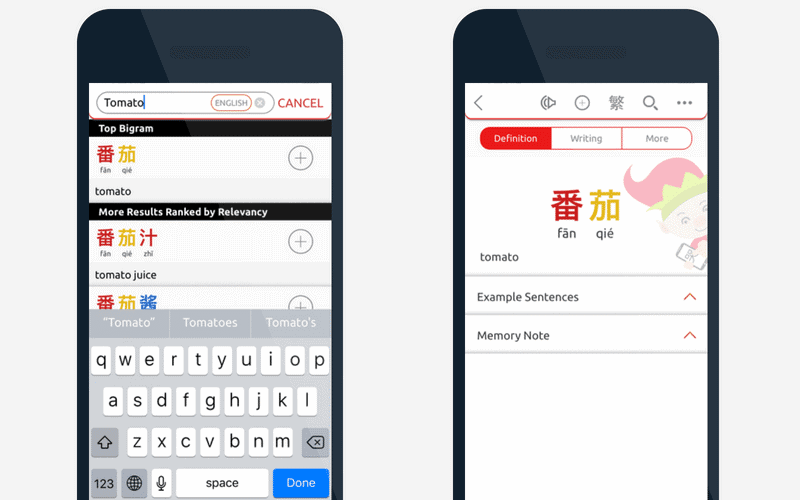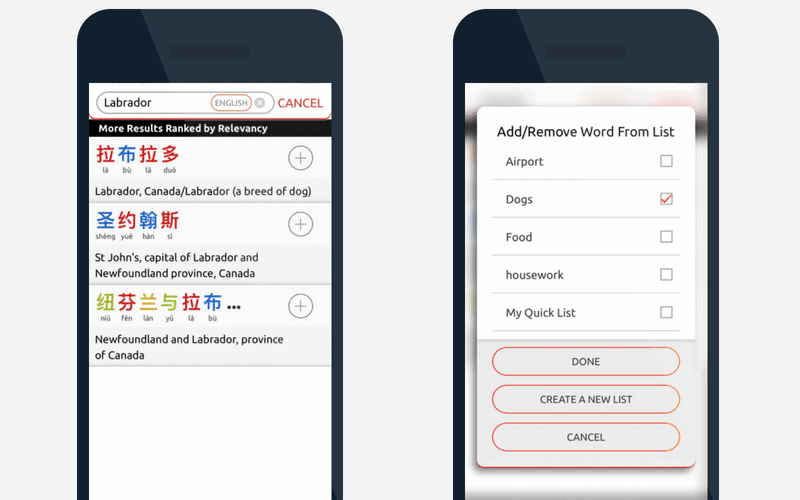It will only take 9 minutes to read this post!
Even if you’ve had Chinese lessons to prepare you for coming to China, there’s one thing these classes probably didn’t prepare you for: the various accents, dialects and local slang that REAL Chinese speakers use day-to-day. But don’t panic! It was always going to be different, and there are ways for you to bridge the gap between your Chinese classes back home and the Chinese spoken in China.
Below are some actionable ways for you to improve your listening skills with native speakers in China:
Start Listening. No, I mean REALLY listening

The first thing you’re probably going to have to do is adjust your hearing to all of these new sounds. You’re going to hear lots of repetitive sounds including ‘a’s, ‘mm’s and ‘那个‘s you might have problems focusing on anything else. However, once you open your ears, you ‘ll start to hear words and phrases that you’ve learned back home.
An old Chinese teacher of mine once advised me not to fixate on the small filler words I didn’t know, and try and listen to the sentence as a whole. I had a terrible habit of focusing on one small word and then being unable to follow or participate in a conversation!
If you’re teaching Chinese in China, listen to your students, especially if you’re working in a kindergarten or primary school. This is a great opportunity to learn some basic vocabulary, including food and simple verbs. When I was teaching, I often asked my teachers what my students were talking about, and yes, it was often about weird kid stuff, but a chance to learn, nonetheless.
Speak As Often As You Can

Speak in the grocery store. Speak in the coffee shop. Ask the person at the other table if you can take that chair. You need to step out of your comfort zone, and just speak. I know, I know, it’s easier said than done.
To prepare yourself, use a dictionary app on your phone to check our the word you might need.
You want to ask the assistant in the supermarket where the tomatoes are. Oh, shoot. how do you say tomatoes again…? Check out the word in your dictionary before going to the assistant, listen to the audio so you know how to pronounce it, construct your sentence, then ask your question!
Talk To Yourself

I often have conversations in my head before I have to deal with something that I don’t like, such as making a phone call or complaining (nooooo!). You might want to do this in the privacy of your own home, but why not speak out your sentences to practice those sentence patterns and pronunciation.
Go a step further and record yourself speaking. Trust me, before we started the podcast, hearing my own voice was nightmare-ish, but once you do it a few times, it gets much easier. Use your own recordings in Chinese to help you correct your Chinese grammar and pronunciation.
Speak Like a Child

In his book, The Third Ear, Chris Lonsdale recommends focusing on the words you do have to communicate, just like children do. Instead of trying to construct complex sentences, stick to what you do know to get your point across. Furthermore, in his TEDx Talk, Lonsdale states that if you know 10 nouns, 10 adjectives and 10 verbs, you can create 1000 different phrases!
Wait for the Correct Word

I found this great piece of advice from Hacking Chinese, that suggests you wait for the other person to provide a word that you’re missing. This will not only help you fill in the missing vocabulary that you don’t have or have forgotten, but it can also help build confidence. Often enough, you can jump in after the other person has spoken and repeat the word as though you meant to say it all along!
Create Flashcards to Help Cement New Words
To help you remember those new words you learn whilst you’re out and about, make sure you create a flashcard straight away. If you’re using the Written Chinese Dictionary app or another flashcard app, you can search for the new word and simply add to a list you’re compiling.
I have several lists that I use, such as ‘Useful Words to Learn’ which holds words that people have taught me. I also keep a food list and a dog list so that I can converse with my fellow dog owners on our evening meetings.
Once you have time to study, listen to the audio for each word and try and create a sentence using it (yes, speak it out loud!).
Create a ‘Toolbox’ of Sentence Patterns
You may have already done this whilst studying with a teacher, but compiling and referring back to sentence patterns can be extremely useful for your spoken Chinese.
Here are several ‘sentence pattern’ lists to take a look at:
- 10 Essential Chinese Sentence Patterns Every Beginner Should Know
- 18 Intermediate Chinese Sentence Patterns You Need to Learn
Use Mandarin HQ’s Real Spoken Chinese Vault
Mandarin HQ’s Real Spoken Chinese Vault is a database of videos to teach you everyday vocabulary and phrases that are actually useful! So many Chinese textbooks out there have their limitations, because they teach us to speak very formulaically, with sometimes formal and outdated words. In the Real Spoken Chinese videos, you’ll hear REAL native speakers, using their own dialects and own way of speaking to help you recognize differences between Chinese speakers and ways of asking the same question (or providing an answer) in many ways.
For example, in one of the videos, the speakers ask the question “When is your birthday?”, in their own way. There isn’t just one way to ask this question, and in this situation, there are two common phrases:
- 你 的 生 日 是 几 月 几 号?
- 你 的 生 日 是 什 么 时 候?
Other examples may have 3 or 4 different ways to ask or respond to a question, such as greeting someone in the morning or asking how someone is doing.
These videos are aimed to help ‘bridge’ the gap between classroom lessons and what it’s like to communicate with a real-life person in Chinese.
Mandarin HQ is offering Written Chinese readers a special offer to unlock ALL the videos, quizzes, audio and detailed transcripts in the Real Spoken Chinese Vault. You’ll have access to every single lesson from Beginner to Intermediate FOREVER!
Sound interesting? You can learn more about the Real Spoken Chinese Vault here.
Watch TV Shows and Listen to Audio
Watching Chinese TV shows can be a great way to listen to native speakers communicate. At first, it may just sound like white noise, but you’ll soon begin to hear phrases you know. Watching TV you can also gain a lot from context and learn based on what the characters are doing and saying. Is there a word or phrase you’re unsure of? Make a note of it and search in a dictionary afterwards. Since you’re most likely streaming, you can pause your show and check the subtitles for the characters.
Watching TV and listening to radio and podcasts is also useful for listening to different dialects. The home of Written Chinese, Shenzhen is a melting pot of accents and dialects from Chinese people all over the country and at first, it can be tricky to understand some of the thicker accents!
If you’re watching TV as a tool to improve your Chinese, you might want to stay away from period dramas and stick with modern sitcoms, dramas and game shows where the language used is more useful. Furthermore, to get the most of a show, you need to watch it several times, so sticking with shorter half-hour length shows would be more beneficial and easier to digest.
Take a look at some of our articles to find a TV Show to watch:
- 10 Chinese TV Shows to Help You Learn Mandarin
- 10 Guilty Pleasure Reality Shows that Will Help Your Chinese Language Skills
- “Fou Fou’s Thug Adventure” Video
- “Miss Puff’s Hourglass” Video
How have you bridged the gap from the classroom to speaking Chinese in China? Share your methods with us below!
The post Bridging the Gap: From Chinese Classroom to Speaking Chinese in China appeared first on Written Chinese.
from Written Chinese https://ift.tt/2ICfMeD
--------
More tips about learning Chinese
http://hellolearnchinese.com







没有评论:
发表评论